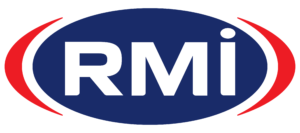 Converting informal automotive businesses to formal accredited, regulatory compliant businesses of the Retail Motor Industry Organisation (RMI) is one of the key focus areas of the organisation – particularly at a time when unemployment figures are at an all time high.
Converting informal automotive businesses to formal accredited, regulatory compliant businesses of the Retail Motor Industry Organisation (RMI) is one of the key focus areas of the organisation – particularly at a time when unemployment figures are at an all time high.

RMI Chief Executive Officer, Jakkie Olivier, says for these informal and rural businesses that attend the training and development in the RMI’s New Venture Creation (NVC) learnership programme, one of the goals is to be empowered to meet and exceed industry standards on compliance, equipment, tools, infrastructure, and human resources. He stressed the relevance of staying current in tough economic times.
The four predominant sectors in the motor industry which learners represent are general mechanical repairs, motor body repair and spray painting, parts sales, and tyre fitment centres. The RMI has created a NVC learning platform for collaboration, cooperation, and co-creation of knowledge assets for education, training, and skills development. The intention is to create sustainable business ventures for competent learners following assessments and moderation of assignments in the program lay-out, so as to ensure that they too, become good corporate citizens.
“Informal and rural businesses, and those in the different sub-sectors of the automotive aftermarket industry, are faced with the challenge of bridging the gap between the informal and formal sector and of being acknowledged as equal participants in the mainstream economy,” he says. Programmes like the NVC learnership help bridge the gap and provide these learners with the opportunity to upskill and become compliant and exceed industry standards. ‘It opens doors to compete for fleet, government, insurance, and Original Equipment Manufacturer approval panels which gives them a significant advantage in gaining new business,” says Olivier.
This month, Olivier attended a prize giving ceremony in Centurion where seven learners on the New Venture Creation (NVC) learnership program were commended on achieving milestones in the learning program.
The RMI also partnered with Equal Career Services (ECS) and dedicated time and resources to have all the learners benefit from blending the delivery of the programme to include virtual and face-to-face sessions. Kowie Botha, CEO of ECS, said he was impressed with the tenacity and work ethic of the learners.
Thanks also to Gondolier who sponsored milestone prizes which were handed to learners by Karel Venter, Gondolier’s Chief Operations Officer.
Noni Tshabalala, RMI Transformation Director, as well as two Association representatives from the Motor Industry Workshop Association (MIWA), a constituent trade association of the RMI, were also present and impressed the importance of learners being able to rub shoulders with like-minded businesses to resolve challenges being experienced; of learning how to deal with customers fairly and getting educated on professional ways of engagement of industry providers, suppliers, government departments, government agencies, and the like.” Tshabalala also highlighted how happy she was to see the success of so many female winners. “Women are increasingly playing a meaningful role in our industry and we welcome their enthusiasm and expertise,” she says.
Olivier said this pilot group of learners was mainly from Gauteng, but confirmed a further intake of learners will be offered shortly to candidates in other provinces. He said the programme is co-funded by the Manufacturing, Engineering and Related Services Sector Education and Training Authority (merSETA) and the custodianship of the NVC Qualification lies with the Services SETA.
Olivier concluded, “The RMI remains committed to assisting willing and committed informal and rural business owners and managers to meet the exit level outcomes of the registered qualification. There is no doubt entrepreneurs from the informal economy can be successful in the mainstream, alleviating poverty and creating further employment opportunities in the country.”
 ..:: AUTO REPORT AFRICA ::..
..:: AUTO REPORT AFRICA ::..




